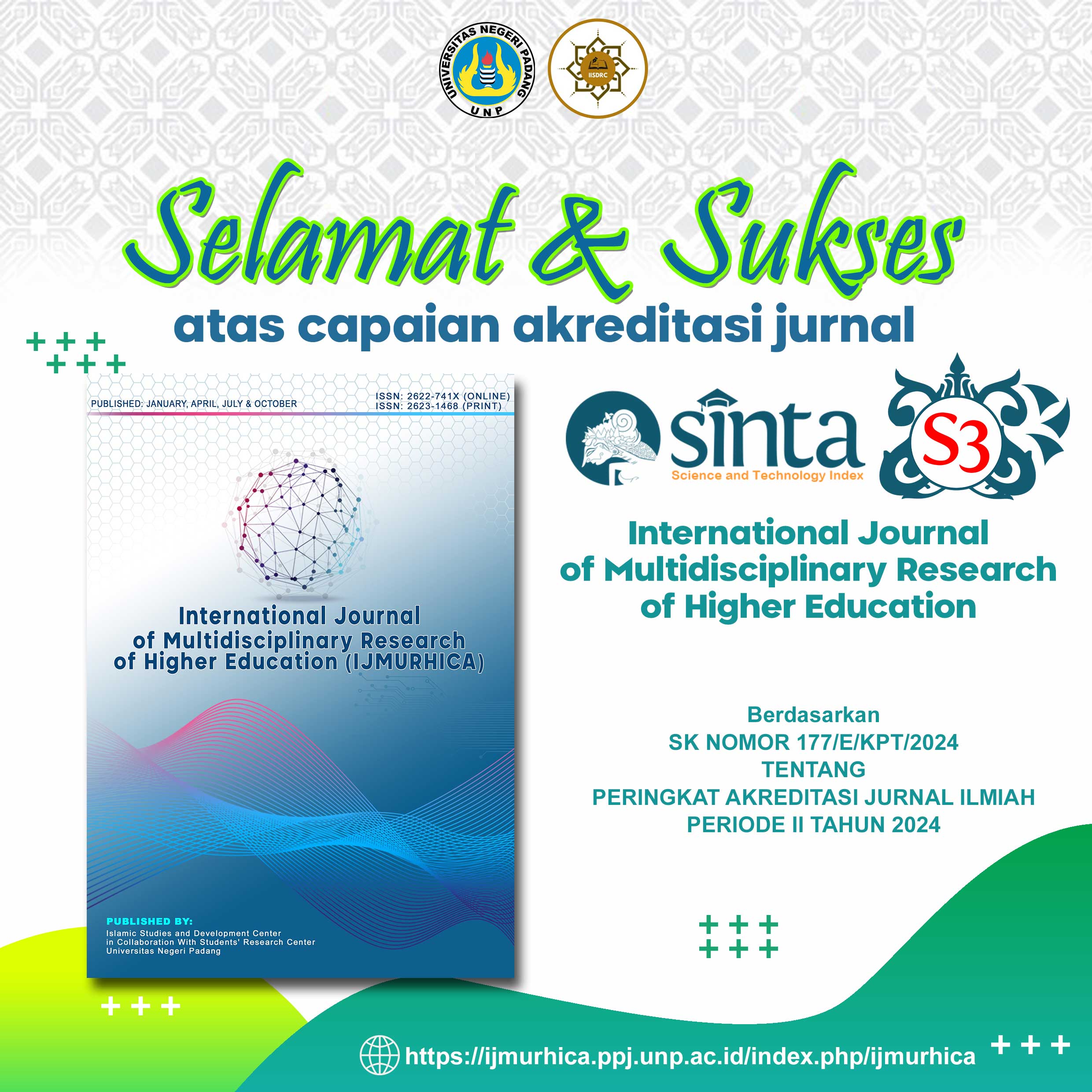The Influence of Parents' Attitudes, Knowledge and Income on Students' Financial Management Behavior
DOI:
https://doi.org/10.24036/ijmurhica.v8i4.439Keywords:
Attitudes, knowledge, parental income, financial management, studentsAbstract
This study examines the influence of parents' attitudes, knowledge, and income on the financial management behavior of students at a university in Indonesia. The approach used is quantitative with a survey method conducted over a period of time. A sample of 100 respondents was selected from a population of 4,018 students using simple random sampling. Data were collected using a five-point Likert scale questionnaire that had been assessed as valid and reliable, then analyzed using multiple linear regression after all basic assumptions were met, such as normality, no excessive relationships between predictors, and homogeneity of residual variance. The results show that the model constructed is feasible overall and can explain approximately seventy-four point two percent of the variation in student financial management behavior. Separately, financial attitudes and financial knowledge have a positive and significant effect, indicating that students with better attitudes and stronger understanding tend to be more capable of budgeting, recording expenses, saving, and controlling spending. Conversely, parental income did not show a significant effect, suggesting that financial behavior is determined more by internal factors than by family economic conditions. These findings emphasize the importance of structured financial literacy programs at the faculty and study program levels to instill healthy financial practices among students.
Downloads
Downloads
Published
How to Cite
Issue
Section
License
Copyright (c) 2025 Aisyah Norma Ruslita Batubara, Isnaini Harahap, Siti Aisyah

This work is licensed under a Creative Commons Attribution-ShareAlike 4.0 International License.






